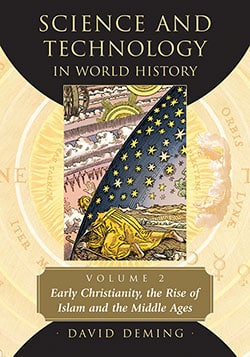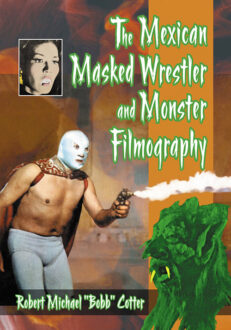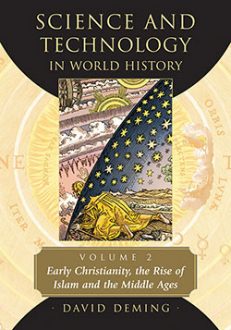Science and Technology in World History, Volume 2
Early Christianity, the Rise of Islam and the Middle Ages
$39.95
In stock
About the Book
Science is a living, organic activity, the meaning and understanding of which have evolved incrementally over human history. This book, the second in a roughly chronological series, explores the evolution of science from the advents of Christianity and Islam through the Middle Ages, focusing especially on the historical relationship between science and religion. Specific topics include technological innovations during the Middle Ages; Islamic science; the Crusades; Gothic cathedrals; and the founding of Western universities. Close attention is given to such figures as Paul the Apostle, Hippolytus, Lactantius, Cyril of Alexandria, Hypatia, Cosmas Indicopleustes, and the Prophet Mohammed.
About the Author(s)
Bibliographic Details
David Deming
Format: softcover (7 x 10)
Pages: 237
Bibliographic Info: notes, bibliography, index
Copyright Date: 2010
pISBN: 978-0-7864-5839-4
eISBN: 978-0-7864-5642-0
Imprint: McFarland
Table of Contents
Preface 1
1. Christianity 3
Jesus Christ (c. 4 B.C.–A.D. 30) 3
Paul the Apostle (c. A.D. 0–60) 13
Growth of the Christian Church 18
Monasticism 23
Attitudes Toward Philosophy 26
Demonology 31
Attitudes Toward Women 36
Charity 41
2. The Dark Ages (c. A.D. 500–1000) 47
The Intellectual Decline of Europe 47
Failure of Ancient Science and Natural Philosophy 48
Cosmas Indicopleustes (c. A.D. 490–585) 56
Isidore of Seville (A.D. 560–636) 59
3. Islam 63
The Prophet Mohammed (A.D. 570–632) 63
Islamic Expansion 81
Islamic Science (c. A.D. 750–1200) 86
Decline of Islamic Science and Philosophy 105
4. High Middle Ages in Europe (c. A.D. 1000–1300) 112
Feudalism and Economic Stagnation 112
Medieval Warm Period 114
Economic and Technological Progress 115
Crusades 116
Cathedrals 120
Logic and Literature 123
Translations 132
Aristotle and the Church, 13th Century 135
Rise of the Universities 139
5. Thomas Aquinas (1225–1274) and Scholasticism 146
Dominican Monk 146
Albertus Magnus (c. 1200–1280) 148
Reason and Revelation 148
Summa Theologica 149
Scholastic Synthesis 152
6. Roger Bacon (c. 1214–1294) 154
Magician and Scientist 154
Emergence of Empiricism in the Thirteenth Century 155
Oxford and Robert Grosseteste 157
Paris, Magnets, and Occult Forces 159
Opus Majus 163
Compendium Studii Philosophiae 167
7. Technological Innovation During the Middle Ages 169
Unwritten History 169
Agriculture 170
Power 172
The Mechanical Clock 175
Military and Economic Technology 177
Conclusion 182
Chapter Notes 185
Bibliography 215
Index 225






